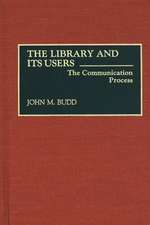Invisible Hands, Invisible Objectives: Bringing Workplace Law and Public Policy Into Focus
Autor Stephen Befort, John Budden Limba Engleză Paperback – 31 mai 2009
The global financial crisis and recession have placed great strains on the free market ideology that has emphasized economic objectives and unregulated markets. The balance of economic and noneconomic goals is under the microscope in every sector of the economy. It is time to re-think the objectives of the employment relationship and the underlying assumptions of how that relationship operates.
Invisible Hands, Invisible Objectives develops a fresh, holistic framework to fundamentally reexamine U.S. workplace regulation. A new scorecard for workplace law and public policy that embraces equity and voice for employees and economic efficiency will reveals significant deficiencies in our current practices. To create one, the authors—a legal scholar and an economics and industrial relations scholar—blend their expertise to propose a comprehensive set of reforms, tackling such issues as regulatory enforcement, portable employee benefits, training programs, living wages, workplace safety and health, work-family balance, security and social safety nets, nondiscrimination, good-cause dismissal, balanced income distributions, free speech protections for employees, individual and collective workplace decision-making, and labor unions.
Invisible Hands, Invisible Objectives is not just another book that sketches a reform agenda. The book provides the much-needed rubric for how we think about employment policy specifically, but also economic policy more generally. It is a must-read in these most critical times.
Invisible Hands, Invisible Objectives develops a fresh, holistic framework to fundamentally reexamine U.S. workplace regulation. A new scorecard for workplace law and public policy that embraces equity and voice for employees and economic efficiency will reveals significant deficiencies in our current practices. To create one, the authors—a legal scholar and an economics and industrial relations scholar—blend their expertise to propose a comprehensive set of reforms, tackling such issues as regulatory enforcement, portable employee benefits, training programs, living wages, workplace safety and health, work-family balance, security and social safety nets, nondiscrimination, good-cause dismissal, balanced income distributions, free speech protections for employees, individual and collective workplace decision-making, and labor unions.
Invisible Hands, Invisible Objectives is not just another book that sketches a reform agenda. The book provides the much-needed rubric for how we think about employment policy specifically, but also economic policy more generally. It is a must-read in these most critical times.
| Toate formatele și edițiile | Preț | Express |
|---|---|---|
| Paperback (1) | 291.78 lei 3-5 săpt. | |
| Stanford University Press – 31 mai 2009 | 291.78 lei 3-5 săpt. | |
| Hardback (1) | 994.14 lei 6-8 săpt. | |
| Stanford University Press – 31 mai 2009 | 994.14 lei 6-8 săpt. |
Preț: 291.78 lei
Nou
Puncte Express: 438
Preț estimativ în valută:
55.83€ • 58.29$ • 46.21£
55.83€ • 58.29$ • 46.21£
Carte disponibilă
Livrare economică 14-28 martie
Preluare comenzi: 021 569.72.76
Specificații
ISBN-13: 9780804761543
ISBN-10: 080476154X
Pagini: 328
Dimensiuni: 152 x 229 x 18 mm
Greutate: 0.43 kg
Editura: Stanford University Press
Colecția Stanford Economics and Finance
ISBN-10: 080476154X
Pagini: 328
Dimensiuni: 152 x 229 x 18 mm
Greutate: 0.43 kg
Editura: Stanford University Press
Colecția Stanford Economics and Finance
Recenzii
"Invisible Hands, Invisible Objectives demonstrates well the need to embrace explicit objectives and models of the employment relationship to understand, analyze, study, and reform workplace law and public policy. It also clearly shows what can be gained from such an approach. The book is aimed at a wide audience and is highly readable but at the same time fulfills the prerequisites of an academic textbook. It could be used for university courses at undergraduate and postgraduate levels as well as in labor education in the United States and abroad . . . This text will be an excellent resource for teaching comparative industrial relations for advanced law students, as the underlying theoretical concept is very appealing and easily applicable for comparative purposes."—Martin E. Riask, Labor Studies Journal
"The book is a model of interdisciplinary scholarship, seamlessly blending the disciplines of law, economics, and public policy, along with a sprinkling of international human rights and comparative law, to focus on the 'big picture' of labor and employment law in the United States . . . Invisible Hands, Invisible Objectives creates and applies a framework to make discourse about the future of American employment policy more intelligent, more comprehensive, more honest, and more constructive."—Laura J. Cooper, Chronicle
"Professors Befort and Budd offer specific policy recommendation that would balance workplace law and public policy's three objectives—efficiency, equity, and voice. Even if the reader does not finally agree with the book's recommendations for reform, he or she will no doubt find use in the author's clear and open discussion of what is often left unsaid about the goals and models of workplace law."—Harvard Law Review
"Written for policymakers and scholars, this volume shows how the current global financial crisis affects free market ideologies, and how employment relationships in the United Sates need to be reworked in terms of regulations and economic efficiency."—Book News
"Invisible Hands, Invisible Objectives offers a values-driven analysis of workplace law and policy and a timely blueprint for reform. Budd and Befort's conceptual framework will be an important tool for scholars and students seeking to make sense of the existing crazy-quilt patchwork of work law, and for policymakers committed to a regulatory ideal of 'employment with a human face.'"—Marion G. Crain, Washington University School of Law
"A book like this is especially needed today, given the expanding divide between the top ten percent of earners and the lower ninety percent. With the decline of private sector labor organizations, American workers have been left with no real voice and no individual bargaining power. Our health care coverage and pension programs are in dire shape, and the authors make proposals to deal with such critical issues. Sooner or later, American workers are going to realize how poorly they are being treated, and a book like this will be needed to help leaders think about what should be done."—Charles Carver, George Washington University and author of Can Unions Survive?
"Invisible Hands adds to the discussion of public policy toward employment by providing a superior unified framework for thinking about the employment relationship in the United States. The authors' approach will be very persuasive to practitioners and scholars alike and will alter the discussion of employment issues."—Dale Belman, Michigan State University
"A book like this is especially needed today, given the expanding divide between the top ten percent of earners and the lower ninety percent. With the decline of private sector labor organizations, American workers have been left with no real voice and no individual bargaining power. Our health care coverage and pension programs are in dire shape, and the authors make proposals to deal with such critical issues. Sooner or later, American workers are going to realize how poorly they are being treated, and a book like this will be needed to help leaders think about what should be done."—Charles Carver, George Washington University and author of Can Unions Survive?
"Invisible Hands adds to the discussion of public policy toward employment by providing a superior unified framework for thinking about the employment relationship in the United States. The authors' approach will be very persuasive to practitioners and scholars alike and will alter the discussion of employment issues."—Dale Belman, Michigan State University
Notă biografică
Stephen F. Befort is the Gray, Plant, Mooty, Mooty, and Bennett Professor of Law at the University of Minnesota Law School. He is the author of Employment Law and Practice, Second Edition (2003). John W. Budd is the Industrial Relations Land Grant Chair at the University of Minnesota's Carlson School of Management. He is the author of the award-winning Labor Relations: Striking a Balance (2006).
Descriere
Invisible Hands, Invisible Objectives reveals the unstated models and broad objectives of the employment relationship in order to bring coherence to debates over the full breadth of public policies on work—including employment and labor law, social safety nets, and work-family issues.



